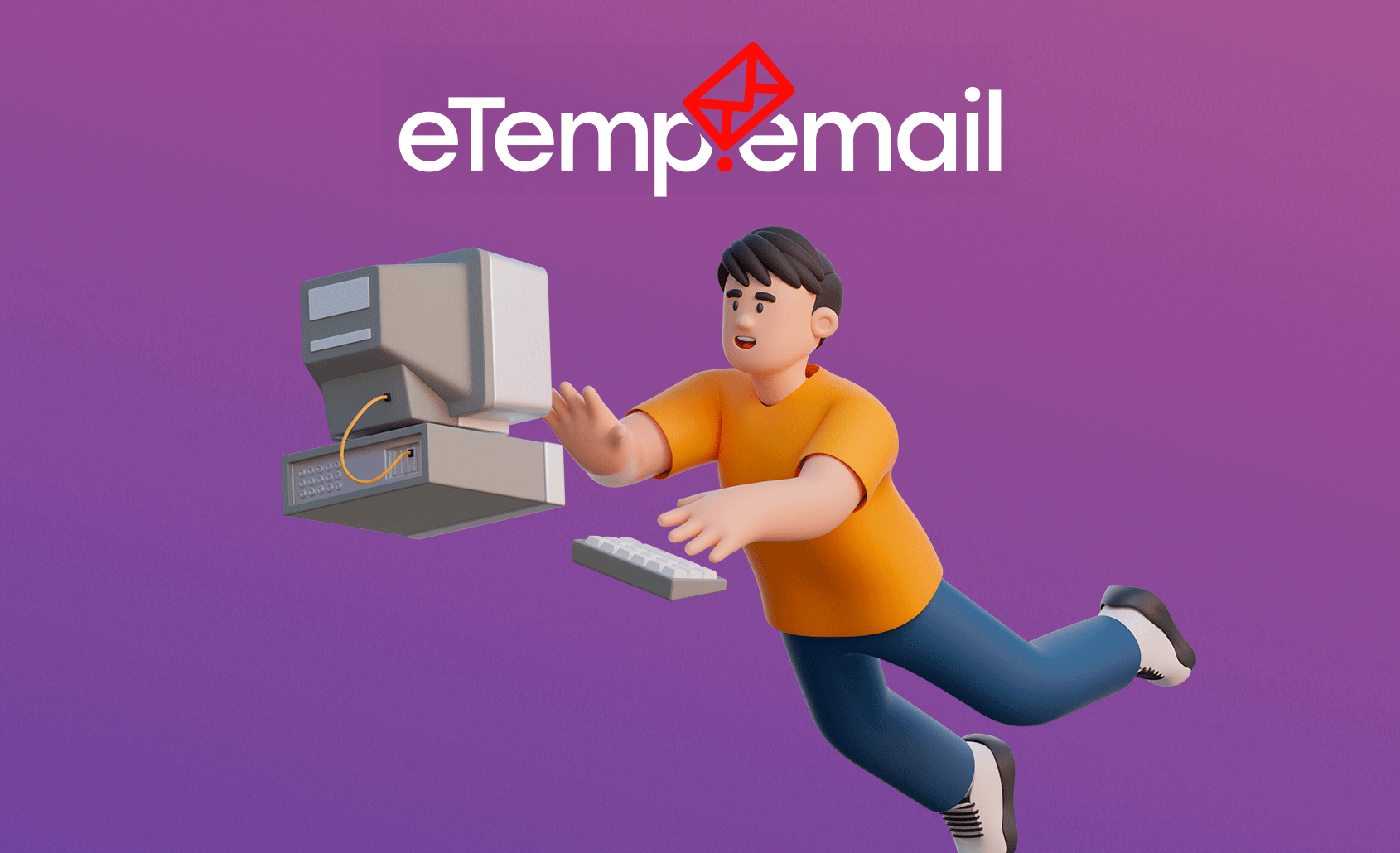

Quantum Computers: What They Can Already Do and What to Expect by 2030
In 2025, quantum computers are no longer a distant dream of science fiction but a tangible reality, pushing the boundaries of what's computationally possible. They promise to revolutionize virtually every industry by solving problems that remain intractable for even the most powerful classical supercomputers. This isn't just about faster processing; it's about an entirely new paradigm of computation.
But what exactly can these enigmatic machines do today? How will they reshape our world by 2030? And crucially, why is data protection in the age of quantum technology becoming a paramount concern? This article will delve into the current capabilities of quantum computers, explore their astounding future potential, and explain how eTemp.email helps you maintain your privacy and security when interacting with these advanced, transformative technologies.
What Are Quantum Computers? A Fundamental Shift in Computation
At their core, quantum computers leverage the peculiar principles of quantum mechanics – such as superposition and entanglement – to process information in fundamentally different ways than classical
- Bits vs. Qubits: Unlike classical computers, which operate with bits that can only be in one state (either 0 or 1) at any given time, quantum computers work with qubits. A qubit can exist in a superposition of both 0 and 1 simultaneously, allowing it to represent and process vastly more information.
- Entanglement: When qubits become "entangled," their states become interdependent, meaning the state of one qubit instantaneously affects the others, regardless of distance. This allows quantum computers to explore multiple possibilities at once and perform complex calculations exponentially faster than classical machines for certain types of problems. Imagine a classical computer trying to find the shortest path through a maze by trying one path at a time; a quantum computer can explore all paths simultaneously.
Current Advances (2025): Quantum's Impact Today
In 2025, quantum computers are already demonstrating impressive results in niche but impactful areas, moving beyond theoretical models to practical applications:
- Cryptography Testing and Development: Leading technology companies and research institutions are actively using quantum algorithms to test the robustness of existing encryption methods. This isn't to break them maliciously yet, but to identify vulnerabilities and, more importantly, to develop and test "quantum-resistant" or "post-quantum cryptography (PQC)" algorithms that can withstand future quantum attacks. This is a critical race against time.
- Optimization Problems: Quantum computers excel at finding optimal solutions within vast sets of possibilities. They are already being used to solve complex logistics and supply chain management problems faster than classical systems, optimizing routes for delivery services, scheduling flights, or managing financial portfolios with greater efficiency.
- Chemistry and Materials Science: Modeling molecular structures and chemical reactions at the quantum level is incredibly complex for classical computers. Quantum computers, by their very nature, can simulate these intricate quantum behaviors, accelerating the development of new drugs, designing novel materials with specific properties (e.g., more efficient catalysts, superconductors), and understanding fundamental biological processes. For example, in 2024, a quantum computer from a leading quantum computing company successfully simulated the behavior of a complex protein, a task that would have taken years on even the most powerful classical supercomputers.
Why Are Quantum Computers Important? Reshaping Our World
Quantum computing is opening up entirely new horizons for science, business, and society. Here are a few key areas where they are already beginning to change the rules of the game:
- Cybersecurity: The Quantum Threat and the Quantum Shield Perhaps the most immediate and profound impact of quantum computing is on cybersecurity. Quantum computers, once powerful enough, could potentially break widely used traditional encryption methods like RSA and Elliptic Curve Cryptography (ECC) in minutes. These algorithms secure almost all of our online communication, from banking transactions and secure websites (HTTPS) to private messages. This makes quantum computers both an existential threat to current data security and a powerful opportunity for developing robust, quantum-resistant algorithms (PQC) to protect data in the future. The race to implement PQC before powerful quantum computers become widespread is a global priority.
- Artificial Intelligence: Accelerating the Learning Process Quantum algorithms can significantly accelerate certain aspects of machine learning, making AI more efficient and capable. This includes faster processing of massive datasets for training neural networks, more efficient optimization of complex AI models, and enabling new forms of quantum machine learning. This acceleration is especially important for advanced applications like
generative models used in creativity and marketing - Medicine and Science: Unlocking New Discoveries Quantum computers can model biological processes at the molecular level with unprecedented accuracy. This capability is crucial for accelerating the development of new drugs for cancer, Alzheimer's, and other diseases by simulating drug-target interactions more precisely. It also holds potential for personalized medicine, advanced climate modeling, and fundamental scientific breakthroughs in physics and chemistry.
Challenges and Risks: The Road to Quantum Computing
Despite the rapid progress, quantum computers still face significant obstacles:
- Qubit Stability (Decoherence) and Error Rates: Qubits are incredibly fragile. They are susceptible to "decoherence," where their quantum state collapses due to interaction with the environment (e.g., heat, electromagnetic fields). This leads to noise and errors, making it difficult to maintain stable quantum computations and limiting their scalability to larger, more complex problems. Achieving "fault-tolerant quantum computing" is a major ongoing research challenge, often requiring extreme conditions like near-absolute zero temperatures and vacuum.
- Affordability and Accessibility: Currently, quantum computers are incredibly expensive to build, operate, and maintain, making them accessible only to large corporations, governments, and leading research centers. Most access is provided via cloud platforms rather than on-premise hardware.
- Cyber Threats: The Quantum Cryptography Apocalypse: The potential for quantum computers to break existing encryption methods by 2030 (a scenario sometimes called "Q-Day" or "Quantum Apocalypse") poses a critical cyber threat to all digital communications and stored data.
In the age of quantum technologies, where new paradigms of security are emerging, privacy protection becomes an even higher priority. When registering on platforms related to quantum computing, cutting-edge AI, or any new, less-understood technology, it's essential to use temporary email addresses to avoid spam, potential data leaks, and maintain your anonymity. eTemp.email offers secure, instant
What to Expect by 2030: The Quantum Leap Forward
By 2030, quantum computers are expected to become significantly more affordable, stable, and powerful, moving closer to solving "real-world" problems at scale. Experts predict:
- Increased Scalability and Fault Tolerance: We anticipate a significant increase in the number of stable qubits, potentially reaching thousands, and advancements towards fault-tolerant quantum computing. This will enable them to tackle problems of global scale that are currently impossible.
- Broader Commercialization and Cloud Access: Small and medium-sized companies will begin to leverage quantum computing more readily through cloud-based quantum platforms. This will allow businesses to access specific quantum algorithms for specialized problems without owning expensive hardware.
- Emergence of New Industries: Quantum computing will drive the creation of entirely new markets and sub-fields, including quantum machine learning, quantum financial modeling, and advanced quantum simulation for drug discovery and materials science. For example, quantum computers could enable the optimization of global energy grids, leading to significant reductions in carbon emissions, or accelerate the development of materials for next-generation batteries and solar cells.
How Does eTemp.email Help in the Age of Quantum Technology?
Working with advanced technologies, including nascent quantum platforms and AI research services, requires heightened caution. Signing up for new services, testing cloud-based quantum systems, or participating in beta tests can inadvertently expose your personal data to new and potentially unknown risks. eTemp.email addresses this problem by offering a robust solution for your digital privacy:
- Instant Creation of Temporary Email Addresses: Get access to new quantum or AI platforms in seconds, without a lengthy registration process.
- Protection from Spam and Phishing Attacks: Keep your primary inbox clean and secure, preventing unwanted marketing or malicious attempts associated with new tech service sign-ups.
- Enhanced Anonymity When Interacting with Technological Platforms: Explore and experiment with cutting-edge technologies without linking your personal identity to potentially unknown data collection practices or future data breaches.
- Automatic Data Erasure: All correspondence via eTemp.email is automatically deleted after a set period, leaving no long-term digital footprint.
Conclusion
Quantum computers in 2025 are already changing the world, from accelerating medical discoveries to fundamentally reshaping cybersecurity. Their impact is only set to multiply exponentially by 2030. However, with these unprecedented opportunities come new, complex risks.
By embracing smart digital hygiene and leveraging trusted tools like eTemp.email, you can proactively protect your valuable data and confidently explore the exciting future of technology. Try




